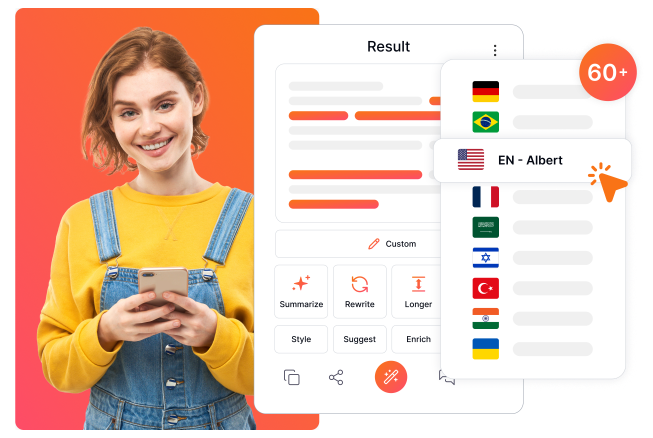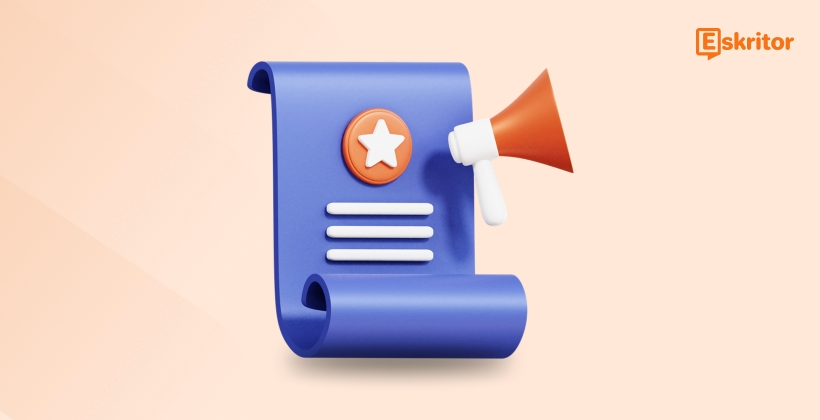Why AI Editing is Revolutionizing Proofreading
Why AI Editing is Revolutionizing Proofreading
Blog Article
Why AI Writers Are Essential for Modern Businesses
Artificial intelligence (AI) writing engineering has developed fast in the last decade, reshaping the way we create and interact with written content. From grammar correction instruments to AI-generated novels, the options look limitless. But wherever precisely is this technology heading? Let's explore the innovations, challenges, and potential potential of AI writer.

How AI Writing Technology Operates Nowadays
At their core, AI publishing technology depends on Normal Language Processing (NLP) and equipment learning. These systems allow types to know, generate, and increase human language. Instruments accessible today do well at tasks like:
1. Material Generation
AI has reached a place wherever it can make total blog articles, social media marketing sayings, and even news articles. Some designs are capable of mimicking individual writing types so efficiently that distinguishing between AI- and human-written content has become significantly difficult.
2. Syntax and Design Idea
AI-powered publishing personnel don't just check for syntax and spelling errors; they also give suggestions to boost tone, quality, and sentence structure, making complicated publishing accessible to a wide audience.
3. Sentiment Examination
AI may examine the emotional tone of a piece, allowing businesses to assess how their communications will resonate with readers. This really is especially of use in advertising and customer interaction.
The Recent Trends in AI Writing Engineering
A few styles are shaping another stage of AI-powered writing methods:
• Personalization
AI publishing technology is significantly capable of tailoring content to specific preferences. Versions may conform to a user's publishing design, ensuring the production feels authentic.
• Multilingual Capabilities
Several AI resources are expanding their global achieve by offering increased interpretation features and support for multiple languages.
• Enhanced Research Features
AI resources now possess the ability to analyze substantial levels of information and present fact-checked, well-researched publishing in seconds, simplifying the procedure for professionals in industries like law, financing, and journalism.
What the Potential Keeps for AI Writing Technology
1. Improved Creativity
While recent AI is good at generating content, its imagination continues to be limited by patterns within their teaching data. Potential AI isn't just expected to help but to create original, insightful performs that problem human imagination.
2. Seamless Cooperation
Envision an AI that operates along with you in real-time, completing your phrases, conducting live edits, and actually brainstorming ideas. AI publishing methods may soon become co-authors, enabling imagination to flow uninterrupted.
3. Moral and Available Design
With rising matter about plagiarism, misinformation, and error, developers work toward more translucent AI teaching operations and ethical implementation. Future resources will more than likely offer more comprehensive details and actions to ensure accountability.
Difficulties and Criteria
The progress of AI writing technology is not without hurdles, including:
• Moral Dilemmas

Who possesses content produced by AI? Just how can we ensure AI-generated content isn't distributing misinformation? These debates remain unresolved.
• Human-AI Stability
Can AI match individual creativity or completely change specific functions? Many authors and artists be concerned about their relevance within an AI-driven world.
• Availability Divide
Not absolutely all businesses or parts have equivalent use of cutting-edge AI resources, raising issues in regards to the influence of the engineering on global inequality.
Changing the Way We Create
AI writing engineering is still in its infancy in comparison to their potential. Whether you are students creating essays, a material marketer targeting certain audiences, or perhaps a novelist seeking creativity, AI tools may continue to revolutionize the publishing process. Another decade promises breakthroughs that blend individual ingenuity with unit intelligence, making a future where publishing is more effective, accessible, and impactful than ever before.
Report this page